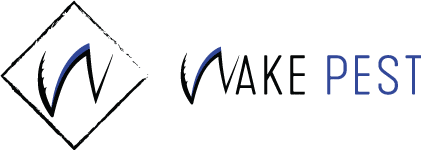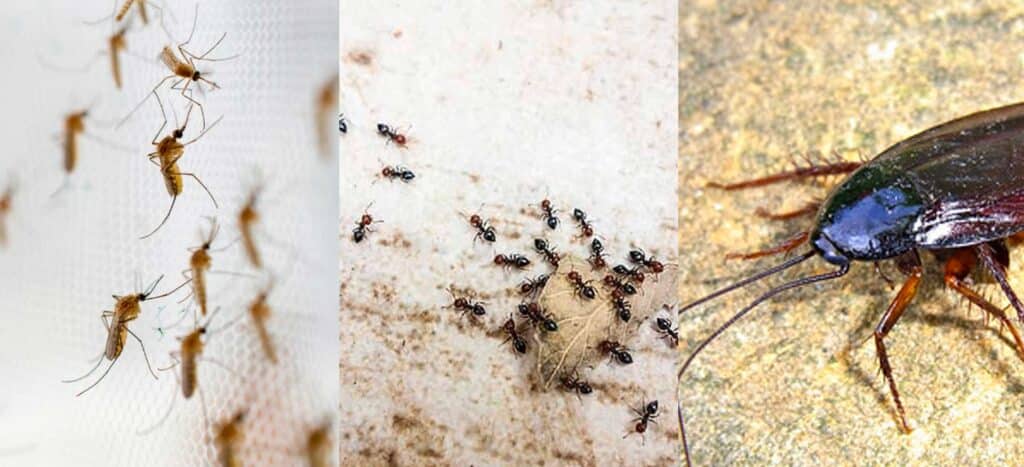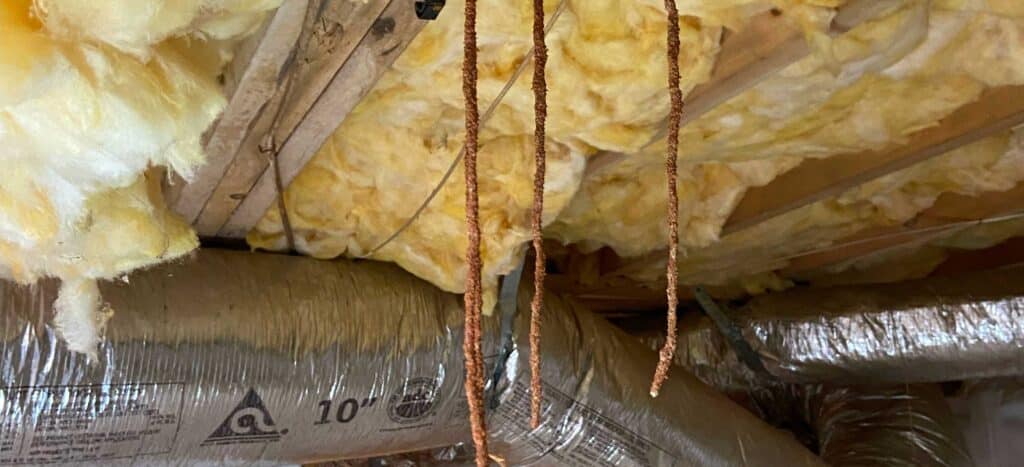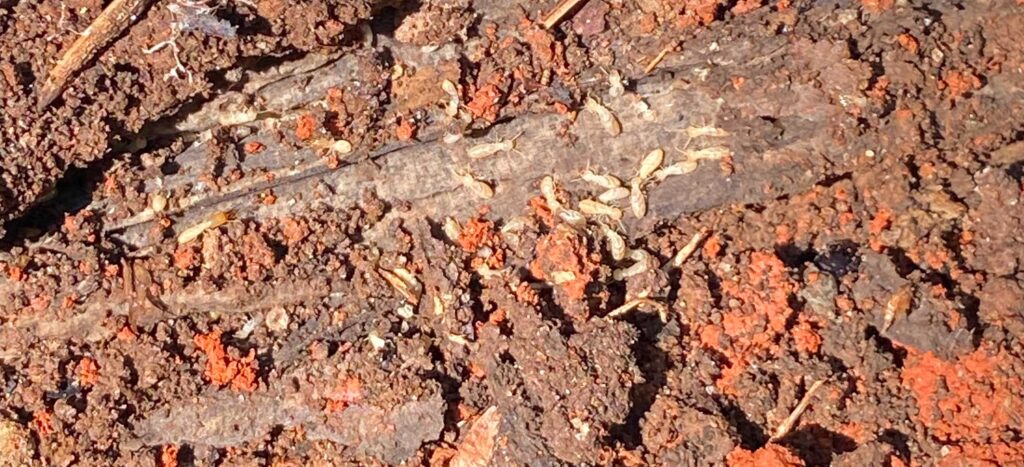As the Spring landscape in Wake Forest begins to bloom with vibrant colors, homeowners face a less welcome seasonal change: the emergence of spring pests. This time of year, the warming weather causes a variety of pests, including ants, termites, wasps, and mosquitoes, to become increasingly active. While a natural part of our ecosystem, these pests can become a nuisance and even pose health risks when they invade our living spaces.
The key to effectively managing these unwelcome spring visitors lies not in reactive measures but in proactive prevention. Understanding the habits and lifecycles of common pests enables us to create barriers against their intrusion. In this article, we will guide you through essential steps to safeguard your home against the typical springtime pest surge in Wake Forest. By implementing these practices, you can enjoy the beauty of spring in North Carolina without the frustration of pest infestations.
 Understanding Common Spring Pests in Wake Forest, NC
Understanding Common Spring Pests in Wake Forest, NC
Before diving into prevention methods, it’s crucial to understand the common pests that thrive during the spring in Wake Forest, NC. This knowledge not only helps identify potential threats but also aids in implementing more targeted prevention strategies.
- Ants: One of the most common invaders, ants become active in spring, searching for food. They can enter homes through the tiniest cracks, seeking sweets, meats, fats, and bread.
- Termites: Termites, particularly the Eastern Subterranean Termites prevalent in North Carolina, emerge in spring to start new colonies. They can cause significant structural damage to homes by feeding on wood.
- Wasps: With warmer weather, wasp activity increases. They build nests in sheltered areas like eaves, attics, and under wood decks. While they can be beneficial in controlling other pests, their stings can be a concern.
- Mosquitoes: Mosquitoes thrive in standing water, which becomes more common in spring. They’re not just a nuisance; they can also be carriers of diseases.
- Roaches: One of the most common roaches in North Carolina is the Smoky Brown Cockroach. Some people refer to them as Wood Roaches or Water Bugs. The large-bodied roach you’ll usually find in your kitchen or bathroom is likely a Smokey Brown Roach. They thrive in moist environments such as attics, garages, and crawl spaces. They also feed on and can be found harboring in organic matter like leaves and pine straw. Keeping your home free of debris and clutter, including cleaning your gutters, will help with these pests.
These pests have unique characteristics and behaviors that influence the best prevention methods. In the following sections, we will explore various strategies to prevent these common spring pests from becoming unwelcome guests in your homes.
 Preventive Measures for Indoor Pests
Preventive Measures for Indoor Pests
A critical aspect of pest control is taking proactive steps to prevent pests from entering your home. Here are some effective measures you can implement to safeguard your indoor spaces against common spring pests:
Sealing Entry Points
- Inspect the exterior of your home for cracks and gaps, especially around doors, windows, and the foundation. Seal these openings with appropriate materials like caulk or weather stripping. This simple step can significantly reduce the entry of ants, termites, and other pests.
Proper Food Storage
- Pests are primarily attracted to homes in search of food. Store food items in airtight containers, especially sweets, grains, and pet food. Avoid leaving food in the open, and regularly clean crumbs and spills from counters and floors.
Regular Cleaning and Decluttering
- A clean and clutter-free home is less attractive to pests. Regular vacuuming and dusting can remove potential food sources and nesting materials. Pay special attention to areas under furniture, corners, and hidden spaces where pests like to hide.
Humidity Control
- Pests like termites and ants are attracted to moisture. Use dehumidifiers in damp areas of your home, such as basements and crawl spaces. Fix leaky pipes and faucets promptly and ensure good ventilation to dry your home.
Inspecting Packages and Secondhand Items
- Before bringing packages or secondhand furniture into your home, inspect them for signs of pests. This can prevent the accidental introduction of pests like bed bugs and termites.
By incorporating these preventive measures, you can create an environment that is less inviting to pests, significantly reducing the likelihood of infestations in your home. Remember, prevention is always better and more cost-effective than dealing with an established pest problem.
 Outdoor Pest Prevention Strategies
Outdoor Pest Prevention Strategies
Maintaining a pest-free home isn’t just about what you do inside; it’s also about managing your outdoor space to reduce the attractiveness of your property to pests. Here are some effective outdoor pest prevention strategies for homeowners in Wake Forest, NC:
Landscaping and Yard Maintenance
- Keep your lawn mowed and bushes trimmed. Overgrown vegetation can provide shelter and breeding grounds for pests like mosquitoes and rodents.
- Remove leaf litter, fallen branches, and other yard debris which can harbor pests.
- Consider planting pest-repellent plants like lavender, marigolds, and citronella around your garden.
Eliminate Standing Water
- Mosquitoes breed in stagnant water. Regularly check and empty out any containers that collect rainwater, such as buckets, bird baths, and clogged gutters.
- Ensure proper drainage in your yard to prevent water from pooling.
Secure Garbage and Compost Bins
- Keep garbage and compost in sealed bins. Pests like ants, rodents, and raccoons are attracted to food waste.
- Regularly clean and disinfect these bins to minimize odors that attract pests.
Inspect and Repair Outdoor Structures
- Check fences, decks, sheds, and other outdoor structures for signs of pest activity and decay. Repair any damages and seal gaps where pests might enter.
- Use pest-resistant materials or treatments where possible.
Outdoor Lighting
- Insects are attracted to standard outdoor lighting. Switch to yellow-tinted bulbs or sodium vapor lights, which are less attractive to pests.
By implementing these outdoor pest prevention strategies, you can significantly reduce the risk of pests entering your home from the outside. A well-maintained outdoor space not only enhances the aesthetic appeal of your property but also plays a crucial role in keeping your home pest-free.
When to Call Wake Pest?
Sometimes, despite your best efforts at prevention and using over-the-counter products, pest infestations can become overwhelming or complex. In such cases, calling in professional pest control services is wise. Here are scenarios when you should consider professional help:
Signs of Severe Infestation
- Professional intervention is necessary if you notice signs of a severe infestation, such as extensive termite damage, large nests of wasps or bees, or significant numbers of rodents or insects.
- Professionals have the expertise and equipment to handle large or dangerous infestations safely and effectively.
Persistent Pest Problems
- If you’ve tried DIY methods and products, but the pests keep returning, it might be time to call a professional. They can identify the root cause of the problem and provide more effective long-term solutions.
Health and Safety Concerns
- Certain pests, like wasps, bees, or venomous spiders, can pose a health risk, especially if someone in your household is allergic. Professionals can remove these pests safely.
- Pesticides can be hazardous if not used correctly. Professionals are trained in the safe application of these chemicals.
Preventive Treatments
- Regular preventive treatments by professionals can be more effective and less hassle than trying to manage pests on your own, especially for persistent problems like termites or carpenter ants.
Expertise and Peace of Mind
- Pest control professionals have the knowledge and experience to tackle various pest issues. They can provide peace of mind with their expertise and ensure the job is done correctly.
If you’re facing any of these situations, don’t hesitate to contact our pest control agency in Wake Forest, NC. We offer various services tailored to your needs, ensuring your home stays pest-free and safe.


 Understanding Common Spring Pests in Wake Forest, NC
Understanding Common Spring Pests in Wake Forest, NC Preventive Measures for Indoor Pests
Preventive Measures for Indoor Pests Outdoor Pest Prevention Strategies
Outdoor Pest Prevention Strategies